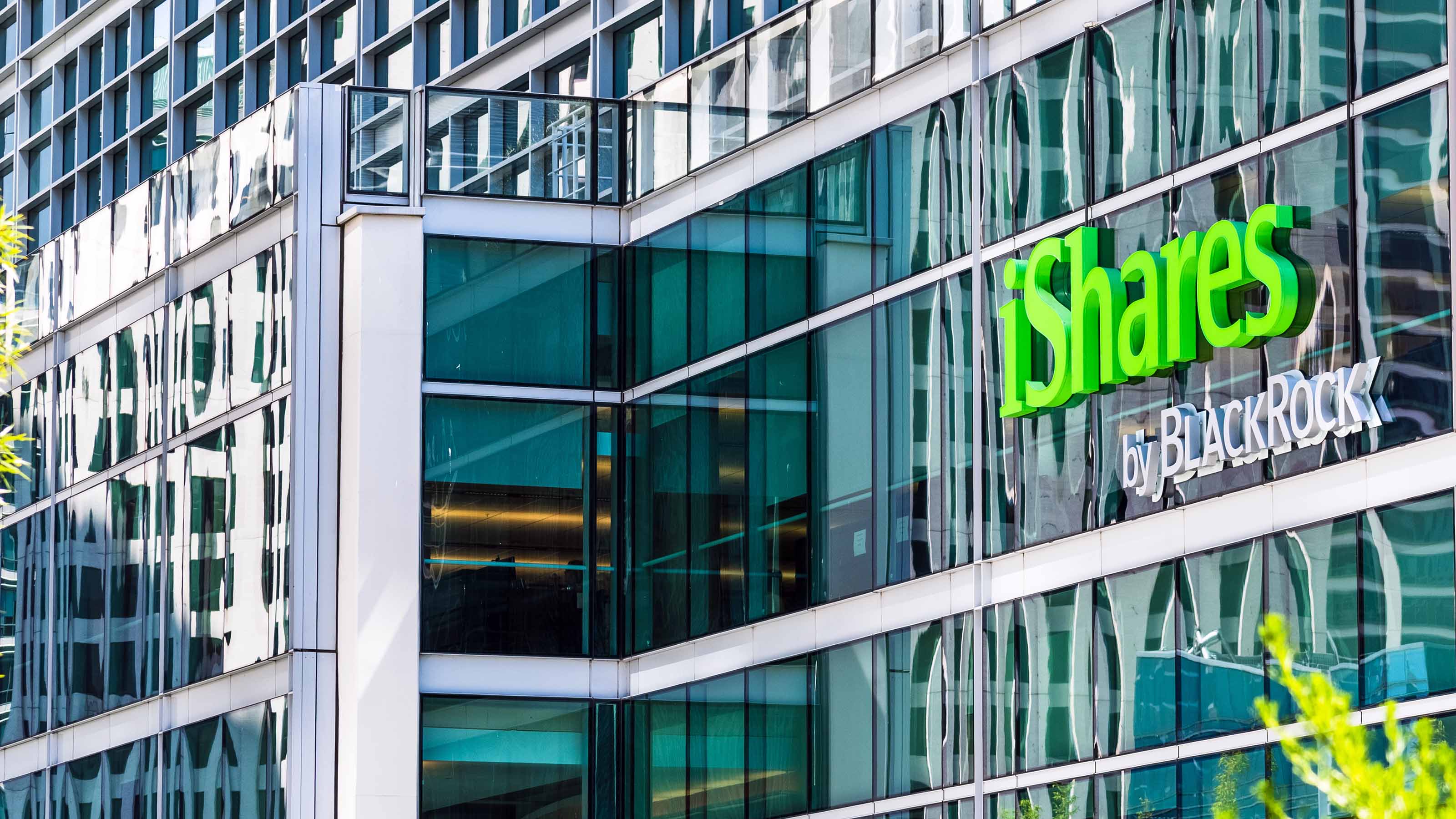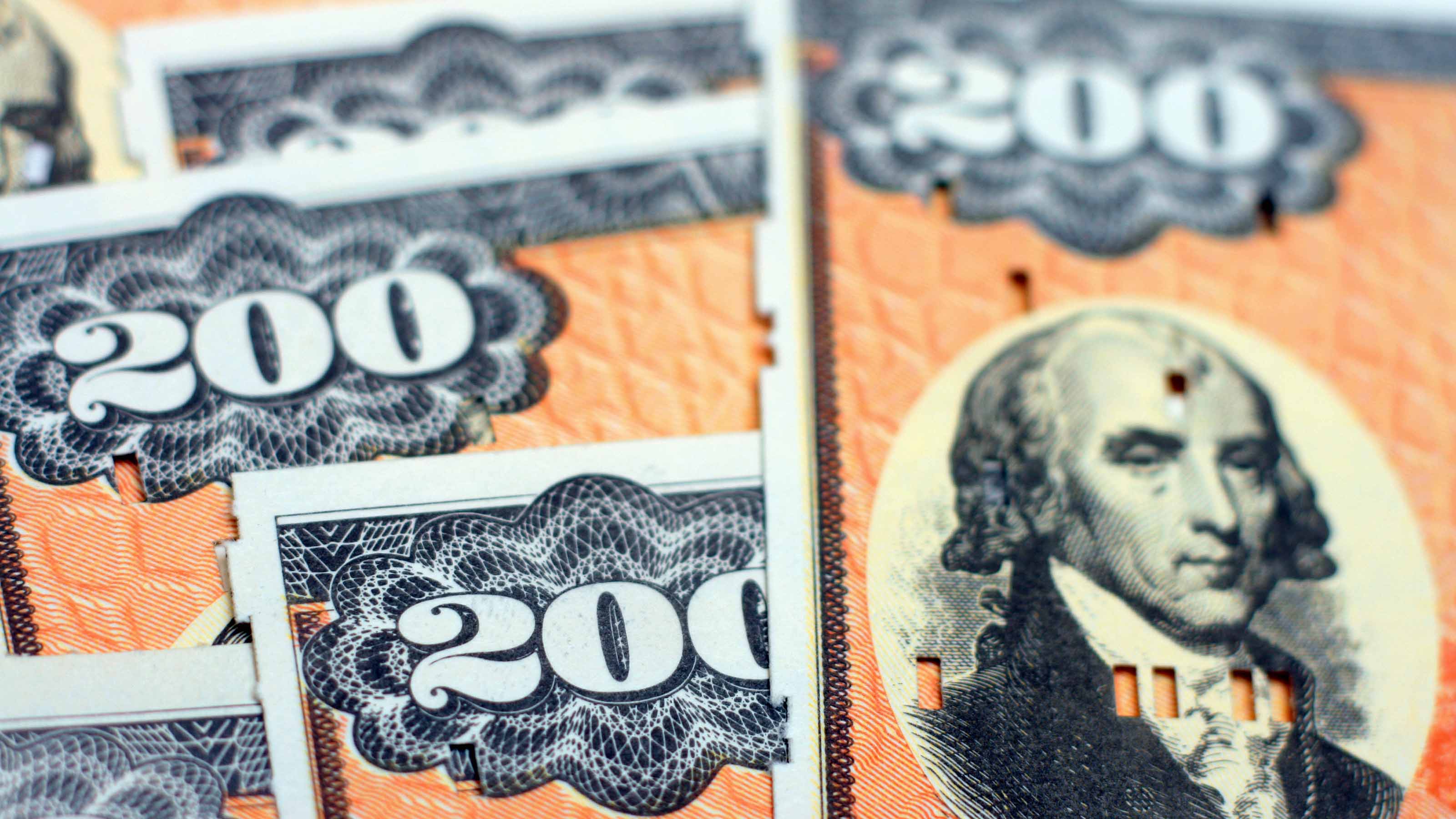The 5 Best iShares ETFs for a Core Portfolio
You can assemble a simple, diversified and dirt-cheap portfolio using just a handful of the best iShares ETFs from its 'Core' series.


Profit and prosper with the best of Kiplinger's advice on investing, taxes, retirement, personal finance and much more. Delivered daily. Enter your email in the box and click Sign Me Up.
You are now subscribed
Your newsletter sign-up was successful
Want to add more newsletters?

Delivered daily
Kiplinger Today
Profit and prosper with the best of Kiplinger's advice on investing, taxes, retirement, personal finance and much more delivered daily. Smart money moves start here.

Sent five days a week
Kiplinger A Step Ahead
Get practical help to make better financial decisions in your everyday life, from spending to savings on top deals.

Delivered daily
Kiplinger Closing Bell
Get today's biggest financial and investing headlines delivered to your inbox every day the U.S. stock market is open.

Sent twice a week
Kiplinger Adviser Intel
Financial pros across the country share best practices and fresh tactics to preserve and grow your wealth.

Delivered weekly
Kiplinger Tax Tips
Trim your federal and state tax bills with practical tax-planning and tax-cutting strategies.

Sent twice a week
Kiplinger Retirement Tips
Your twice-a-week guide to planning and enjoying a financially secure and richly rewarding retirement

Sent bimonthly.
Kiplinger Adviser Angle
Insights for advisers, wealth managers and other financial professionals.

Sent twice a week
Kiplinger Investing Weekly
Your twice-a-week roundup of promising stocks, funds, companies and industries you should consider, ones you should avoid, and why.

Sent weekly for six weeks
Kiplinger Invest for Retirement
Your step-by-step six-part series on how to invest for retirement, from devising a successful strategy to exactly which investments to choose.
Exchange-traded funds (ETFs) have become an investment juggernaut over the past decade, and they're still growing. Bank of America estimated at the end of 2019 that ETF assets would grow 25% to about $5.3 trillion by the end of 2020 … and explode to $50 trillion by 2030.
As more ETFs launch, it has become more difficult for investors to wade through the selection pool to build a fundamentally sound, easy-to-manage portfolio. But a few fund providers have the tools for the job – indeed, several of the best iShares ETFs can be combined to create a basic but comprehensive portfolio.
iShares offers more than 370 ETFs that investors can use to achieve alpha – a return exceeding the major benchmark indices.
However, you have to learn how to walk before you run.
Among those 370-plus products are 25 "Core"-branded ETFs that provide the basic building blocks of an investment portfolio. And you can cobble just a handful of these iShares ETFs together to create an inexpensive, diversified multi-asset set of holdings.
Here are the five best iShares ETFs for a core portfolio. We've created a mini-portfolio of ETFs, each with a 20% weighting, that results in an 80% equity-20% fixed income blend. (You can adjust how much you hold of each to fit your goals.) It's also extremely inexpensive, costing just 0.06% annually on average.
Data is as of Sept. 17. Yields represent the trailing 12-month yield, which is a standard measure for equity funds.

iShares Core S&P Total U.S. Market ETF
- Assets under management: $27.1 billion
- Dividend yield: 1.7%
- Expenses: 0.03%, or $3 annually for every $10,000 invested
Investing in the iShares Core S&P Total U.S. Stock Market ETF (ITOT, $75.73) will get you exposure to a collection of roughly 3,550 stocks – about seven times the number of stocks you'd own if you were to buy an S&P 500 tracker like the iShares Core S&P 500 ETF (IVV).
Both cost the same – a tiny 0.03% annual fee – but by tracking the performance of the S&P Total Market Index, and not just the S&P 500, you're giving yourself the foundation upon which to construct a focused portfolio that can stand the test of time.
For example, while the IVV has an average market cap of about $160 billion, ITOT's average is approximately 40% less at $96 billion. Its weighting for micro-, small- and mid-cap stocks amounts to 23.2% compared to 12.2% for IVV. Yes, most of the portfolio is still big blue chips such as Apple (AAPL) and Microsoft (MSFT), but you're getting more size diversification.
Most of the time, tracking the S&P 500 is going to provide more than satisfactory performance. However, historically, when recessions happen, small-cap stocks tend to come back punching. Small caps have outperformed in the recovery in nine out of the past 10 economic downturns.
That's why ITOT is one of the best iShares ETFs you can buy: because you gain that diversification and that edge in times of economic recovery for no extra cost.

iShares Core S&P Small-Cap ETF
- Assets under management: $43.1 billion
- Dividend yield: 1.6%
- Expenses: 0.06%
The iShares Core S&P Small-Cap ETF (IJR, $72.14) is, as the name suggests, another of iShares' Core-series ETFs.
Not only are the Core products inexpensive, costing about a ninth of the fees charged by the average mutual fund, but they're also tax-efficient as well. According to iShares, only 6% of its ETFs have paid a capital gain over the past five years. Equally important, its core ETFs track the performance of high-quality, established indices such as the S&P SmallCap 600 Index, in the case of IJR.
The iShares Core S&P Small-Cap ETF is one of the best iShares ETFs because, for just 0.06%, it gives investors access to some 600 small-cap stocks, whose average is just $1.6 billion, or half the average for the small-cap blend category. In fact, not only does IJR provide exposure to small-cap stocks, but it also has a 12.9% weighting in micro-caps (market values of roughly $50 million to $300 million), which means you're buying into some of America's chanciest but also most potential-packed stocks.
Right now, the top three sectors by weighting are industrials (18.6%), consumer discretionary (15.6%) and financials (15.3%). And unlike many large-cap funds, where the top holdings have significant sway over the fund's performance, IJR's top 10 holdings represent a mere 6.2% of assets. Top holdings currently include Momenta Pharmaceuticals (MNTA), which was acquired by Johnson & Johnson (JNJ) in August, helping to boost the fund's fortunes; international food safety firm Neogen (NEOG); and fast-casual restaurant chain Wingstop (WING).
The ETF has a turnover rate of 16%, which means it replaces the entire portfolio once every six years, which isn't a lot.

iShares Core U.S. REIT ETF
- Assets under management: $1.4 billion
- Dividend yield: 3.9%
- Expenses: 0.08%
In a low-interest-rate environment like our current one, there are only so many ways to generate income. Real estate investment trusts (REITs), which are companies that own and/or operate real estate and are required to pay out 90% of their profits as dividends, remain an excellent way to provide a reasonable amount of income while also delivering long-term capital appreciation.
For just 0.08% annually, the iShares Core U.S. REIT ETF (USRT, $45.73) provides get low-cost, long-term exposure to U.S. real estate. You're getting a diverse set of real estate, too, across nearly 150 holdings. Specialized REITs (a broad category of real estate) makes up 26.7% of the portfolio, followed by residential (17.7%) and industrial (14.7%). You also get exposure to health care, retail, office and other properties, too.
The largest REIT held by USRT is Prologis (PLD), an owner of 963 million square feet of industrial and logistics real estate, which represents 8.8% of assets. It also owns data center REIT Equinix (EQIX) and storage-solutions REIT Public Storage (PSA), among others.
USRT isn't the largest real estate-focused REIT on the market, but it's one of the best iShares ETFs to use in building a basic portfolio. It has delivered attractive performance over the past decade, it offers a yield of nearly 4%, and it can be bought for a song.

iShares Core MSCI Total International Stock ETF
- Assets under management: $21.5 billion
- Dividend yield: 2.5%
- Expenses: 0.09%
Diversification isn't just about the number of stocks or ETFs you have in your investment portfolio. It's also about the type of assets you hold and the markets in which you own them.
In recent years, U.S. large-cap stocks have outperformed virtually every other type of investment. Well down the list would be international stocks, which have gotten a bad rap from investors because of recent underperformance. That won't be the case forever.
To avoid home-country bias, investors ought to consider a global approach to their portfolio construction. The iShares Core MSCI Total International Stock ETF (IXUS, $59.88) helps you do that at a very reasonable management expense ratio of 0.09%.
IXUS tracks the performance of the MSCI ACWI (All Country World Index) ex USA IMI Index. It owns more than 4,300 stocks across nearly 50 countries, with its largest weightings in financials (16.3%), consumer discretionary (13.3%) and industrials (12.7%).
Not only do you get exposure to some of the world's biggest developed markets, such as Japan (16.9% weighting), United Kingdom (8.9%) and Germany (5.9%), you also own stocks from emerging markets such as China (10.9%). at 11.2%. Overall, IXUS provides a 79% weighting in developed markets and the remainder to emerging markets in Asia, Latin America, Africa and Europe.
The iShares ETF's top 10 holdings, which account for 11% of the fund's assets, include familiar names such as China's Alibaba (BABA), Switzerland's Nestle (NSRGY) and the U.K.'s AstraZeneca (AZN). In addition to low fees, this iShares ETF also has very little trading drag – it only turns over 6% of its stocks each year.

iShares Core U.S. Aggregate Bond ETF
- Assets under management: $80.2 billion
- SEC yield: 1.2%*
- Expenses: 0.04%
Perhaps you've read in 2020 that the traditional 60/40 portfolio – with 60% invested in equities and 40% invested in fixed-income securities – is dead.
The debate surrounding the 60/40 portfolio has been going on for years, but bonds' extremely limited income potential is hurting the case for being highly exposed to them. That said, every person's threshold for risk is different – our ETF portfolio's 80-20 blend is likely too conservative for some and too risky for others.
Regardless of how much fixed-income exposure you need, you can get it via the iShares Core U.S. Aggregate Bond ETF (AGG, $118.36), which is not only one of the best iShares ETFs on offer – it's also the largest bond ETF in existence.
AGG tracks the performance of the Bloomberg Barclays U.S. Aggregate Bond Index, and you couldn't ask for wider bond exposure. The ETF holds more than 8,300 issues with a weighted average coupon of 3.3 and an effective duration of 5.9 years, which means the fund could be expected to lose 5.9% of its value for every 1-percentage-point hike in interest rates.
The ETF's biggest weighting is U.S. Treasuries at about 38% of assets. In terms of credit quality, all the ETFs bonds are rated BBB or higher, making 100% of the portfolio investment-grade.
The iShares Core U.S. Aggregate Bond ETF's performance is strong, especially given the expense. It outperformed 71% of 330 different funds in the Intermediate Core Bond Morningstar category over the past five years. It does exceptionally well during market downturns. During the financial crisis, it gained 7.6% versus a 55.3% loss for the S&P 500. And during the market's 34% decline from February through March 2020, AGG was down just more than 1% on a total-return basis (price plus income).
* SEC yield reflects the interest earned after deducting fund expenses for the most recent 30-day period and is a standard measure for bond and preferred-stock funds.
Profit and prosper with the best of Kiplinger's advice on investing, taxes, retirement, personal finance and much more. Delivered daily. Enter your email in the box and click Sign Me Up.

Will has written professionally for investment and finance publications in both the U.S. and Canada since 2004. A native of Toronto, Canada, his sole objective is to help people become better and more informed investors. Fascinated by how companies make money, he's a keen student of business history. Married and now living in Halifax, Nova Scotia, he's also got an interest in equity and debt crowdfunding.
-
 Nasdaq Leads a Rocky Risk-On Rally: Stock Market Today
Nasdaq Leads a Rocky Risk-On Rally: Stock Market TodayAnother worrying bout of late-session weakness couldn't take down the main equity indexes on Wednesday.
-
 Quiz: Do You Know How to Avoid the "Medigap Trap?"
Quiz: Do You Know How to Avoid the "Medigap Trap?"Quiz Test your basic knowledge of the "Medigap Trap" in our quick quiz.
-
 5 Top Tax-Efficient Mutual Funds for Smarter Investing
5 Top Tax-Efficient Mutual Funds for Smarter InvestingMutual funds are many things, but "tax-friendly" usually isn't one of them. These are the exceptions.
-
 Nasdaq Leads a Rocky Risk-On Rally: Stock Market Today
Nasdaq Leads a Rocky Risk-On Rally: Stock Market TodayAnother worrying bout of late-session weakness couldn't take down the main equity indexes on Wednesday.
-
 Stocks Make More Big Up and Down Moves: Stock Market Today
Stocks Make More Big Up and Down Moves: Stock Market TodayThe impact of revolutionary technology has replaced world-changing trade policy as the major variable for markets, with mixed results for sectors and stocks.
-
 Small Caps Step Up, Tech Is Still a Drag: Stock Market Today
Small Caps Step Up, Tech Is Still a Drag: Stock Market TodayEarly strength gave way to AI skepticism again as a volatile trading week ended on another mixed note.
-
 AI Unwind Takes 2% Off the Nasdaq: Stock Market Today
AI Unwind Takes 2% Off the Nasdaq: Stock Market TodayMarkets are paying more and more attention to hyperscalers' plans to spend more and more money on artificial intelligence.
-
 Strong Jobs Report Leaves Markets Flat: Stock Market Today
Strong Jobs Report Leaves Markets Flat: Stock Market TodayInvestors, traders and speculators are taking time to weigh the latest labor market data against their hopes for lower interest rates.
-
 Dow Hits New High Ahead of January Jobs Report: Stock Market Today
Dow Hits New High Ahead of January Jobs Report: Stock Market TodayA weak reading on December retail sales was in focus ahead of Wednesday's delayed labor market data.
-
 Tech Stocks Fuel Strong Start to the Week: Stock Market Today
Tech Stocks Fuel Strong Start to the Week: Stock Market TodayThe blue-chip Dow Jones Industrial Average extended its run above 50,000 on Monday and there are plenty of catalysts to keep the 30-stock index climbing.
-
 Dow Adds 1,206 Points to Top 50,000: Stock Market Today
Dow Adds 1,206 Points to Top 50,000: Stock Market TodayThe S&P 500 and Nasdaq also had strong finishes to a volatile week, with beaten-down tech stocks outperforming.
